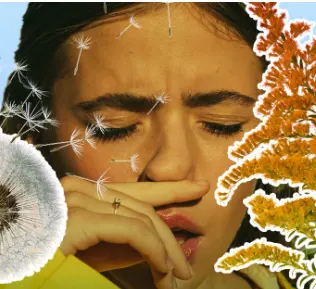Flowers are blooming, or lawns or trees are bursting with new greenery, and — like clockwork — your eyes water, your nose runs, and the sneezes keep coming. You wish you could enjoy the nice weather, but you end up miserable whenever you head outside.
You think it might be a cold, but there’s a pattern. Every year, you have the same symptoms when spring (or summer or fall) is in the air. You probably have seasonal allergies, which are sometimes called hay fever. Some plants, including ragweed, grasses, and oak trees, make a fine powder called pollen that’s light enough to travel through the air. This is how these plants grow and reproduce themselves. More than 25 million Americans are allergic to pollen. Some people are allergic to tree pollen, which is in the air in spring. Others have a problem with grass pollen, which is more of a summertime issue. Still others have trouble with weed pollen, which is common in the fall. If you have a pollen allergy and go outside on a day when it’s flying around, your body will react as if it’s being invaded. Your immune system will make a lot of something called histamine to fight back. Your doctor may first want to confirm that you have an allergy. An allergist can give you a skin-prick test to see what’s causing your problem. Nasal irrigation. It rinses out your sinuses using a squeeze bottle, neti pot, or other device with a saltwater (saline) solution. Make sure you use distilled or sterile water. If you use tap water, you must boil it and let it cool off before you use it. Or you can filter it with a filter that says “NSF 53” or “NSF 58” or says “absolute pore size” of 1 micron or smaller. Also, be sure you clean the bottle or neti pot after every use, also using distilled, sterile, boiled, or filtered water. Bioelectronic sinus device. It works by using microcurrents to stimulate nerve fibers in your sinuses. Sold over-the-counter, it helps reduce sinus inflammation, pain, and congestion. Over-the-counter (OTC) drugs. Antihistamines block the histamine your body makes. If your nose is stuffy, decongestants can help you breathe easier. Some nasal sprays help allergy symptoms, too. Prescription medication.










